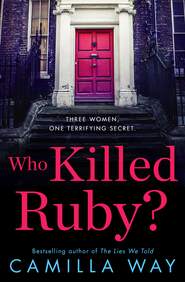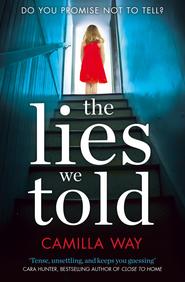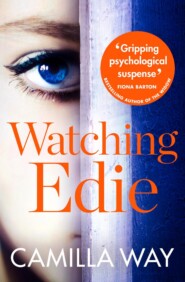По всем вопросам обращайтесь на: info@litportal.ru
(©) 2003-2025.
✖
The Dead of Summer
Автор
Год написания книги
2018
Настройки чтения
Размер шрифта
Высота строк
Поля
Me: ‘Live near here then, Denis?’
Him: ‘Have you got a dog?’
Throughout the day I’d catch glimpses of my brother Push hanging out in the canteen or drifting through corridors between classes. He was clearly throwing himself into Making New Friends. I guess it helped that he was a good-looking, charming bastard. I just thought he was a bastard. He pretended not to recognise me when Denis and I passed in the hall. I eased my way through that first day, taking in the important landmarks, noting the leaders and the losers while pretty much being shunned by both, and by the time lessons finished for the day it was crystal clear that this school was going to suck just as much as my last one had.
By home time I’d managed to get out of Denis that he lived around the corner from me in Brockley. Assuming this meant I’d be stuck with him for the entire bus journey home, I was actually pretty pissed-off when he seemed mad keen to sidle away by himself as soon as we reached the gates.
‘You not catching the 53, then?’ I asked, not actually caring, and trying not to sound like I cared, in case he got the wrong idea and thought that I cared. Which I didn’t.
Denis shrugged his massive shoulders in his too-tight, shiny blazer, looked at his feet and for once answered my question with a proper answer. ‘Gotta wait for Kyle. Gotta wait here till he comes.’ Then he looked away, down the street where no one was. A big, dumb smile on his big, dumb face.
I looked down there too, not really knowing how to stick around, then said, ‘Oh right. See you later then.’ But I stood there for a few minutes longer, swinging my Co-op carrier with its biro sticking out of a hole in the bottom, staring at an ice lolly melting into some dog-shit by my foot. Denis didn’t move a muscle or even look at me again. Finally I shrugged and trudged off by myself, not quite able to believe that Denis had any mates and more than a little put out that he didn’t want me to hang out with them. Still, he was a retard and his mates were probably retards too, so what did I care? I had better things to do.
As I reached the corner I looked back and saw the skinny white kid from my street walking up to Denis. He was still wearing the anorak. Denis was flapping his arm up and down waving like a lunatic, his big plate of a face beaming like the moon.
That summer of 1986 was hot everywhere in England. In our corner of south-east London the days rolled by in blue and gold, the sun bouncing off the dustbins and burning into windscreens. It lit up our faces, bit at our eyeballs. And when I think about that summer I think of it as like a flaming meteor tearing through empty space. As my bus lurched and heaved through New Cross that first day, my school shirt was damp with sweat and I knew it was going to be a long few months until the holidays began. I wished I had a cigarette.
Seven years ago, that was. When I was a different person. When I was thirteen and still Anita. When I didn’t know Kyle.
When I was eleven my mother died suddenly of a well-kept secret. One minute she was stirring a pot of rice in our kitchen in Leeds, the next she was crumpled on the floor clutching her left arm. I’m no expert (or maybe I am), but it was a peculiar death, really. I remember at the time I felt a little embarrassed as I laughed, because it was such a strange joke for her to make, on a Monday evening at seven. ‘That was rubbish,’ I’d said, getting up from my homework for a better look. When it came to fake dying, my mother was clearly in need of advice.
And then I saw her face.
All the things people say about shock aren’t true. Time doesn’t stand still and you aren’t rooted to the spot. What I did do was scream the bloody house down while running like a moron back and forth between her body and the kitchen door. When my father and brother and sisters piled in they found me kneeling, screaming still, trying to shake her awake.
Angina, my Auntie Jam said later. A ticking time-bomb that heart of hers. I wish I’d known. Wish I’d known there were only a certain amount of ticks and tocks my mother’s heart had left: I’d have counted every single one.
In the months that followed, my family was laid waste. Sadness ate my dad up whole. It wrecked him, battered him, finished him. He walked around or mostly sat in a fairly convincing dad-shaped disguise but behind his staring eyes brain-eating zombies had clearly been at work. We could not reach him. He didn’t want us to. Mostly he wanted to drink beer and watch telly in the dark.
And it was easy then for me, Push, Bela and Esha to lose our grip on each other. It was simpler not to hang around the house she had loved us in, her ‘milk chocolate buttons’, half-Yorkshire, half-Bengali. It was easy not to notice our family unravelling if we were not there to watch.
The months passed and bit by bit Mum’s presence faded from the house and the absence of her filled it up. Gradually fewer and fewer envelopes addressed to her landed on the mat; somebody, I don’t know who, moved her coat from the hall, her make-up from the bathroom cabinet. With no one to insist on family meals or curfews, no one to keep an eye on what we did with our time, who really noticed when the others stopped bothering to come home at all sometimes or if I forgot to go to school now and then?
Finally, our Auntie Jam made a stand. Sari swishing with disapproval, Dad was swept into the kitchen for a bollocking. She’d seen Bela coming out of a pub in town, heard rumours that Push was out drinking in the park every night, that Esha was carrying on with the man from the kebabby. As for me, did he even know where I went during the day? Because it certainly wasn’t to school. Her scandalised voice hissed from under the kitchen door as I hung over the banister. Silly cow, I thought. With every outraged word, the subtext was clear. If Dad had done the decent thing and married a Bengali woman in the first place, none of this would have happened. Even in death my mother was an embarrassment and now her miserable half-white kids were dragging the family down even further. Enough was enough. Besides, she had plans for our house.
It’s fair to say, by the time Dad pulled himself together sufficiently to let Auntie Jam talk him into swapping our shitty council house in Leeds for her mate’s even shittier one in London, the Naidus were not winning any prizes for ‘Most Together Family of the Year’.
After that first day at Lewisham High, I came home to find Push and Dad watching telly in the lounge. They were each sitting on an unpacked cardboard box eating rice crispies, last night’s dinner plates and Dad’s empty beer cans round their feet.
If your mansion house needs haunting just call Rentaghost, We’ve got spooks and ghouls and freaks and fools at Rentaghost …
When he saw me in the doorway Push said, ‘All right Nittyno-tits? Saw you with your new fella today.’ He grinned into his rice crispies. ‘Got yourself a catch there, haven’t you?’
Hear the phantom of the opera sing a haunting melody, Remember what you see is not a mystery, but Rentaghost!
‘Yeah,’ I said. ‘Funny,’ I said, and went upstairs. In our room Esha and Bela were getting ready to go out. Picking my way through a fug of hairspray, over puddles of jeans and knickers, shoes and bras, I sat down on my bed to watch. ‘Mind out, Nit.’ Esha used my head to steady herself as she climbed up next to me. Her arms held out for balance, she looked at herself in the half mirror hanging opposite, giggling as Bela got up too, pretend-surfing as they wobbled about on my duvet in their white stilettos.
My older sisters are beautiful and so is Push. (‘Poor Anita,’ my Auntie Jam said once, giving me the evil eye.) Skin like Bourbon biscuits, they had black hair to their bums (I’d hacked mine off with the kitchen scissors when I was nine) and Mum’s wide, green eyes. Desperately Seeking Susan was their favourite film and they wore white lace fingerless gloves and black Ray-Bans and a shedload of red lipstick. Deadly, in other words: the blokes of Lewisham didn’t stand a chance.
I fiddled about with our pink radio-alarm clock, twiddling the knob between stations, listening to the static until Bela shouted at me to pack it in and I went to stare at myself in the bathroom mirror. I looked at my face a lot back then. Not because I thought I was pretty – I knew that I was not – but because eventually, if you stare long enough, you stop recognising yourself; you lose yourself. It’s like if you say the same word over and over again – gradually it becomes just a sound. Meaningless. If you stare at yourself long enough you begin to look like someone else entirely or like no one at all. Sometimes I could pass half an hour like that, scaring myself witless with my own reflection.
My face and eyes are small and brown, the sockets dark like I’ve been punched. Two bruises that match the ones on my father’s face. I have inherited his wounds. The backs of my hands, my knees and feet are also darker than the rest of me and like I’ve said, I’ve always cut my black hair short. In bright light, my arms look quite furry, like a spider’s. I was small for my age and skinny. When I was thirteen I wore Push’s hand-me-downs rather than my sisters’, and strangers, if they thought about it at all, would assume I was a boy.
Later, when my sisters had come back drunk, and my dad had fallen asleep on the sofa and Push had gone to bed, I lay awake and listened to Bela and Esha whispering in the dark. In the few weeks we had been here they had fallen in love with their new life. They were mad about London. They never talked about Leeds or their old friends, or Mum.
They threw themselves into trying out the pubs in Deptford and New Cross, starting college and planning their escape from our dad, our crappy house, and from me. They were sixteen and sick to death of death. They didn’t want sadness anymore. Didn’t want anything to bring them down. A soppy song on the radio? ‘DePRESSing!’ They’d switch stations. A tragic movie on the telly? ‘BORing!’ They’d kick Push to turn it over. Dad sitting in the dark, drinking beer? ‘Just ignore him, silly old bat.’ They weren’t having any of it. Life was too short. Turn up the music, cheer up, have fun!
While I listened to them whisper I remembered how after Mum died I suddenly began to see her everywhere. Out of the corner of my eye I’d spot her in the strangest of places. As I wandered the streets when I should have been at school, a breathless laugh, a flash of red coat or a whiff of Anais-Anais would have me swivelling my head or snuffling up the air like a dog.
My mother had a lightness in her looks and in herself that spilled into Push and the twins but that ran out by the time it was my turn. I, alone, was the dark dregs of my father’s cup. And yet she loved us all and our house was a happy place, in its way. My dad, vague and quiet and usually to be found pottering with our beaten-up old Ford out front, or in our backyard’s flower beds, she loved fiercely, protectively. If she’d find him sometimes staring into space or brooding somewhere by himself she’d bustle and boss him and kiss and hug him like she would with us and he’d blink into life with a surprised, delighted smile. Sometimes I’d catch them sitting together on the sofa or at the kitchen table, my mother laughing and the big, black bruises of my father’s eyes holding her face in tender astonishment.
She was the life of our house, of us. The life, the glue, the point. Her broad Yorkshire accent, her wide lap, her laughter and her love would gently calm Push’s restless energy, force my sisters to share their secret twin world with the rest of us, pull my father from his fuggy silences and forgive me, forgive me, stubbornly, determinedly, forgive me for being the person that I was.
And the rope that kept my family tethered was unbreakable, I thought. Strong. After she died I would often sneak into her wardrobe, just stand there in the dark among the coats and dresses and fill myself with her smells. The perfume mingling with the sweet-sour smell of armpits and soap powder and that perfect smell that was just hers alone. But every time I returned the smell seemed to get a little less, like one of those scent-drenched strips you get in magazines that have been opened and discarded and left to fade. Eau de Mum. Until someone packed away her clothes when I was out one day. My mother was stacked neatly, violently, quietly, in boxes in our attic and that was that.
When my sisters finally fell asleep that night I knelt on my bed and lifted the nets to smoke one of their fags through the open window. I blew rings into the orange-tinged blackness for a while and then I saw Kyle come out of No. 33. He stood on his doorstep for a few seconds and I glanced at the radio-alarm clock. It was way past two. As I watched he knelt down to put on the shoes he’d been carrying, quietly closed the front door, then disappeared off down the street.
two (#ulink_95b7343b-e6e9-5ba3-a9b0-f5b280e2b65b)
New Cross Hospital. 4 September 1986. Transcription of interview between Dr C Barton and Anita Naidu. Police copy.
Kyle’s dead. They’re all dead. I don’t want to talk about it. I don’t want to talk about it. I don’t want to talk about it.
They think I’m strange no doubt, the people who live in this block. They’re students, mostly. Of course I’ve changed my name since I was thirteen, and they don’t recognise me as that little grim-faced girl with the black bar across her eyes in all the papers seven years ago. They don’t recognise me in the way they would if it was Denis or Katie or Kyle (especially Kyle) who they passed in the hallway or on the stairs. For being alive – the sole ‘survivor’ – and still a child, I had the luxury of having my identity protected. No, my neighbours just see a skinny, short-haired boy-girl who has no visitors and won’t return their smiles. In fact, except for Malcolm, I don’t think I’ve ever said a word to a single other person living here.
I came here to Bristol not long after that summer. It was thought best, all things considered (I could hardly go back to Lewisham High, could I?). I was fostered out to a family up here, trained in dealing with people like me. And after I turned sixteen I got a factory job and just stayed.
Now and again I hear my name mentioned – my real name, I mean – and I freeze in shock. Whether it crops up in conversation with the girls in the factory, or there’s a programme on TV, or the papers mention us in connection to some other case (James Bulger, for example), my reaction is always the same. A slow, creeping dread; the same sick fear that I’m going to be found out. Luckily the girls at the factory already think I’m odd, are used to my silence and my solitariness, and don’t notice when I react like this.
When I first moved into this block of flats, my neighbours – the younger ones – tried to befriend me, taking me to be a student like them, I suppose. They’d bang on my door, ask to borrow a bottle-opener, invite me to their parties. It took them ages to understand I would never come. I watch them sometimes from my window when I cannot sleep, watch them returning from their raves and parties; hear them in the hallways boasting of the lads they’ve pulled, the girls they’ve had. I watch them stagger home at five, six, seven in the morning, their arms around each other’s shoulders, and then I lie back on my bed and without even meaning to, I am back there, reliving that summer, wondering when it was, which particular point it might have been when I could perhaps have stopped what happened from happening.
The next day at school went pretty much the same as the first, with Denis cheerfully babbling away by my side. In the weeks that followed I grew used to having him about and even missed him when he went off to his special classes without me. He proudly told me that he had learning difficulties (no shit, I thought), and that it was in the special classes he’d first met Kyle (Kyle was different, he explained. Kyle had behavioural problems). And we’d see Kyle sometimes, sloping through the corridors by himself, sticking to the shadows, always staring at other people’s feet. His hair was greasy, his uniform too long in the sleeves, too short in the legs. Skinny as a stick, he was the sort of kid you suspected would smell faintly of piss. The sort of kid nobody notices and you wouldn’t remember if you had. Except I did, and I don’t know why.
The same thing happened every afternoon. I’d walk out the gates with Denis then he’d sidle off to wait for Kyle, leaving me to go home on my own. But one day we were a little late coming out of class and Kyle was already there, waiting. This time I didn’t let Denis shake me off and walked over to Kyle with him. He must have seen us coming but he kept looking at a spot just beyond us. For a while nobody spoke. Denis just stared down at his shoes as if he was about to get a bollocking off his mum. It was not going well.
‘All right?’ I said eventually. ‘I’m Anita. I live opposite you.’ Kyle stared hard at Denis, who muttered, ‘She’s in my class.’
Then Kyle nodded slowly and looked off down the street just waiting for me to go. I couldn’t believe the nerve. These were two of the biggest losers in our school and even they didn’t want to hang out with me. Still, I’m nothing if not persistent. ‘Where you going then?’ I said, like I wasn’t bothered. ‘Can I come?’
Finally he looked at me. His eyes were astonishing. A pale, flat grey, the colour of lampposts and gutters, the colour of rain, huge in his sharp, bony little face. Evidently he didn’t like what he saw. With a jerk of his head to Denis, he moved suddenly off down the street, Denis trotting after him like a big fat awkward puppy. They didn’t look back.
I stormed off to the bus thinking, wankers, wankers, wankers. Why did I mind so much? I wasn’t after friends – had always preferred, actually, knocking about on my own. I bunked off a lot, wore the wrong kinds of clothes, had a boy’s haircut and didn’t give a fuck about Duran Duran. I didn’t know what to say to the other kids nor they to me. They left me alone and that was only what I wanted.
I had got being ignored down to a fine art – and there is an art to it. It takes concentration and years of practice to ensure that you are constantly overlooked. I was a slipping-into-the-shadows sort of person, a disappearing-into-the-crowd sort of kid. Always on the periphery, a walking ‘Do not disturb’ sign. Nobody bothered me and I intended to keep it that way. I was the invisible girl. And yet. And yet. Something about Kyle tugged at me, pulled at me. I guess I must have seen something in him. I guess I saw me in him.
And at least Kyle and Denis looked like they had a purpose. They didn’t seem to give a shit about school or the other kids either. I wanted to know where they were going, what they got up to after the last bell rang, where Kyle went to at night. I just did. And I really wanted somewhere else to go other than back home.
Do I wish, now, that I’d kept away from them? Do I look back and curse the moment I first set eyes on Kyle? I just wish that he was still here. I miss him still, you see.









